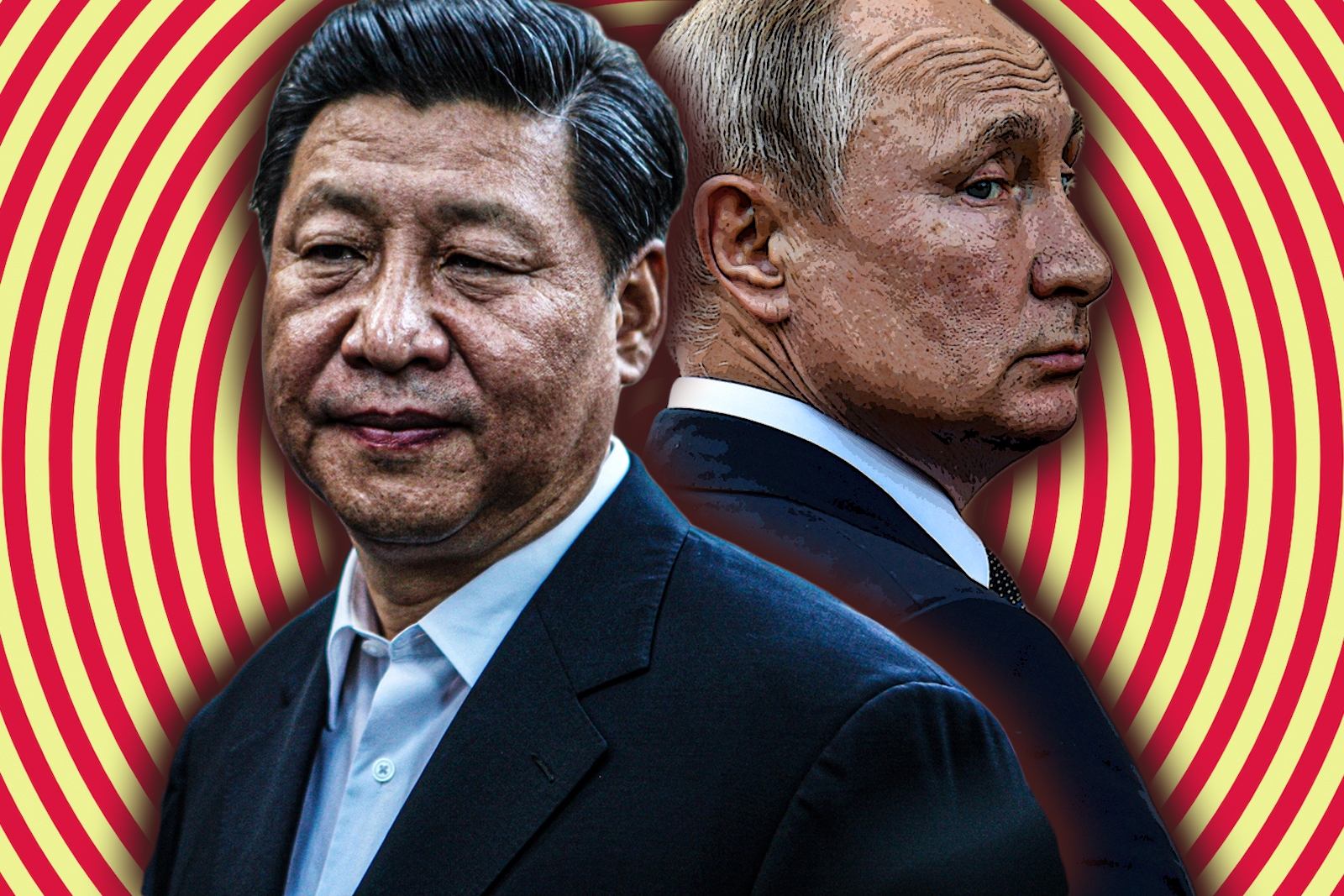
Russia and China’s ‘No Limits’ Partnership has its Limits
BEIJING, China – “Embassy alley” in Beijing, in reality, a patchwork of tree-lined streets with two-story houses, mostly built in the 1960s in a style reminiscent of the 1930s, seems far from the madding crowds. Heavily guarded and monitored, it does not attract, let alone welcome, casual strollers.
Which is why few people in the city have noticed that most Western embassies are displaying Ukrainian solidarity signs near their entrances. Indeed, a rupture has taken place that many are unaware of.
“Friendship between the two states has no limits,” Chinese President Xi Jinping said after he signed a joint statement with Russian President Vladimir Putin less than a month before the Ukraine invasion. For this reason, Xi will not, yet, try to persuade his friend to curtail the attack. But those limits have, in fact, been reached.
China’s relationship with Russia has always been more complicated, less solid, than it appears. Just a couple of months after the two leaders declared their “no limits” partnership, it is clear that there are, in fact, boundaries to how much support Beijing will offer Moscow. Xi has no interest in being entangled in foreign wars and the precariousness of the Chinese economy has his full attention.
Nor can China, for all its economic clout, step in and ease the pain of Western economic sanctions. Russia is China’s third-largest supplier of gas, behind Australia and Turkmenistan. About one-third of Russian exports of crude oil went to China in 2020. But China imported only 10 billion cubic meters of natural gas from Russia in 2021 via the only pipeline from Siberia that links the two countries. This pales in comparison to the 175 billion cubic meters imported by Europe. The pipeline infrastructure for fossil-fuel exports between China and Russia is woefully inadequate.
The West wants China to use its influence over Russia. But intervening too early risks, in Beijing’s view, weakening the Russian president. Better wait to see if he can take Kyiv, before stepping in. But the obvious consequence of this approach is that Xi will be tarnished as a cynical opportunist who lacks the leadership qualities needed by a leader on the world stage.
War is raging in Europe and China hopes this will help it to achieve a long-cherished strategic goal. Like the Imperial powers of 140 years ago, Beijing wants the world carved up. China to dominate Asia and Africa, Russia to get a veto over European security, and America to retreat back to the Monroe Doctrine and South America. Russia’s war in Ukraine could accelerate this global scenario, some in Beijing think. They are wrong. China wants the U.S. to accept its decline. But China too is declining.
It’s not the power it was, even just a few years ago. COVID and corruption are playing havoc with its construction-scandal weakened economy. It remains powerful but growth is uneven and stalling. Russia, as an ally, is diminished. China’s wait-and-see-inaction seems sclerotic. Chinese officials have sent out confusing and frankly incoherent statements. They stress, parrot-like, the importance of territorial integrity but blame the U.S. for the crisis.
China is not having a good war and the U.S. and its allies, after the fiasco of the Afghanistan withdrawal, are again united. NATO, which declared China a security risk in 2021, is rejuvenated. Germany is rearming, a prospect that needs to be examined far more comprehensively than it is. European governments now look at defense spending as a priority. The Chinese leadership gives an impression of being caught wrong-footed by a world that is changing rapidly.
To China, Ukraine is not a faraway country. As recently as January, Xi and Ukrainian President Volodymyr Zelensky exchanged congratulatory messages on 30 years of ties and vowed to strengthen their “fruitful” cooperation. Ukraine is a key part of the Belt and Road Initiative, Xi’s signature infrastructure and foreign policy project. That too seems a casualty of war.
But Beijing will not ditch Moscow, condemn the invasion, and emerge as a peacemaker. Russia is still a useful ally to Beijing in what it sees as its real struggle, with the U.S.
